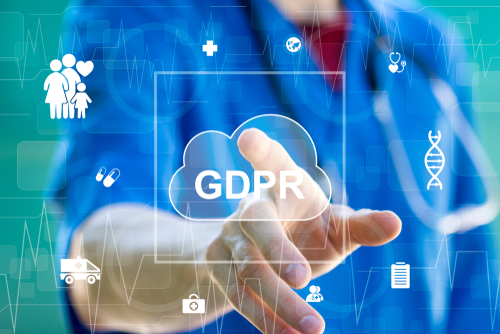How a GDPR Compliance Platform Simplifies the Process for SMEs
There compliance Compliance with the General Data Protection Regulation (GDPR) is a necessity for all companies that process personal data of European Union citizens. However, for small and medium-sized enterprises (SMEs), this process can seem particularly daunting due to limited resources and budgetary constraints. GDPR compliance platform can greatly simplify this process by offering automated tools, clear guides, and affordable solutions. This article explores how such a platform can help SMEs comply with GDPR effectively and efficiently.

Simplified Navigation
One of the essential characteristics of a good GDPR compliance platform is an intuitive user interface. For SMEs that may not have dedicated compliance or IT staff, an easy-to-navigate interface is crucial. Users must be able to quickly access the platform's various features and follow clear instructions to implement the necessary compliance measures.
Accessibility of Features
Quality platforms typically offer a centralized dashboard where all compliance-related tasks are accessible. This includes managing privacy policies, responding to individual requests, and monitoring data processing activities. Simplified navigation saves time and prevents potential errors.
Automated Compliance Audit
Identification of Gaps
THE automated compliance audits are a key feature that helps quickly identify gaps in a company's current data management practices. These audits use algorithms to analyze existing processes and provide specific recommendations for improvement. For SMEs, this means a quick and accurate assessment without the need for extensive legal or technical expertise.
Clear Recommendations
Once gaps are identified, the platform provides clear and actionable recommendations. These recommendations can include specific actions to take, such as implementing additional security measures or updating privacy policies. This allows SMEs to focus their efforts on the most critical aspects of compliance.
Automatic Document Generation
Creation of Policies and Agreements
The creation and the management of legal documents and privacy policies can be complex and time-consuming. A GDPR compliance platform simplifies this process by automatically generating customized documents tailored to each company's specific needs. This includes privacy policies, data processing agreements, and other documents needed to comply with GDPR.
Customization and Update
These documents are not only automatically generated, but are also customized to meet the company's specific needs. Additionally, the platform can automatically update these documents based on legislative or regulatory changes, ensuring ongoing compliance.
Simplified Management of Individual Rights
Process Automation
THE GDPR grants individuals several rights regarding their personal data, such as the right to access, rectify, and delete. Managing these requests can be complex and time-consuming. A GDPR compliance platform automates this process, allowing SMEs to process these requests quickly and efficiently.
Monitoring and Documentation
The platform also ensures rigorous tracking of all requests and the actions taken to respond to them. This includes documenting each request, the responses provided, and the deadlines met, ensuring that companies can demonstrate compliance in the event of an audit.
Data Security
Integrated Security Solutions
There data security is an essential component of GDPR compliance. Compliance platforms often offer built-in security solutions such as data encryption, access management, and continuous system monitoring. These measures help SMEs protect personal data from breaches and unauthorized access.
Monitoring and Alerts
Continuous monitoring and real-time alerts allow for the rapid detection of suspicious activity or potential data breaches. The platform notifies the appropriate officials, enabling rapid response to minimize the impact of a potential breach.
Support and Training
Training Resources
THE GDPR compliance platforms Typically include training resources to help businesses understand and implement the regulation's requirements. This may include webinars, tutorials, and how-to guides on various aspects of GDPR compliance.
Technical Support
Dedicated technical support is also essential to assist users with questions or technical issues. SMEs can benefit from personalized support, allowing them to quickly resolve obstacles and progress in their compliance process.
Affordable Cost
Flexible Pricing
Budget constraints are often a major concern for SMEs. GDPR compliance platforms offer flexible and affordable pricing plans tailored to the specific needs of small and medium-sized businesses. These plans allow SMEs to access high-quality compliance tools without breaking the bank.
Return on Investment
By investing in a GDPR compliance platform, SMEs can avoid potentially costly penalties for non-compliance. Additionally, good data management and rigorous protection of personal information can build customer trust and improve the company's reputation, generating a significant return on investment.
Conclusion
There compliance with GDPR is a major challenge for SMEs, but a GDPR compliance platform can significantly simplify this process. By offering an intuitive interface, automated audits, document generation, individual rights management, integrated security solutions, as well as support and training resources, these platforms enable SMEs to comply with GDPR requirements effectively and efficiently. With affordable solutions tailored to their specific needs, SMEs can not only avoid costly penalties, but also build customer trust and improve their market position.
Frequently Asked Questions
A GDPR compliance platform is a digital tool designed to help businesses, especially SMEs, comply with the requirements of the General Data Protection Regulation. It offers features such as consent management, risk assessment, data processing documentation, and tracking and reporting tools to ensure data protection processes are being followed.
A GDPR compliance platform simplifies the process by providing automated tools to manage GDPR obligations, such as creating privacy policies, managing data access requests, and tracking data breaches. It allows SMEs to save time, reduce compliance risks, and focus on their core business, while ensuring effective protection of personal data.
Key benefits include reducing compliance costs, simplifying complex personal data management processes, and improving transparency and accountability. A platform also makes it easier to manage user consent, conduct impact assessments, and track regulatory obligations, helping SMEs avoid penalties and build customer trust.
When choosing the right platform, it's important to consider several criteria: compatibility with your specific needs, ease of use, customer support, and the features offered. Make sure the platform offers tools that are appropriate for your company's size and nature, as well as customization options to meet the specific requirements of your industry.








